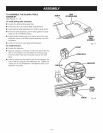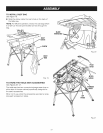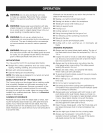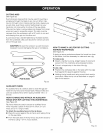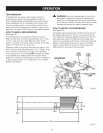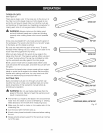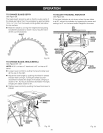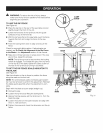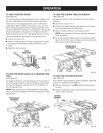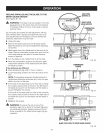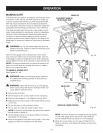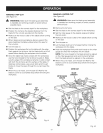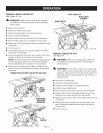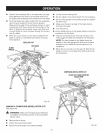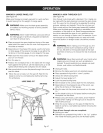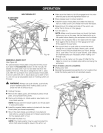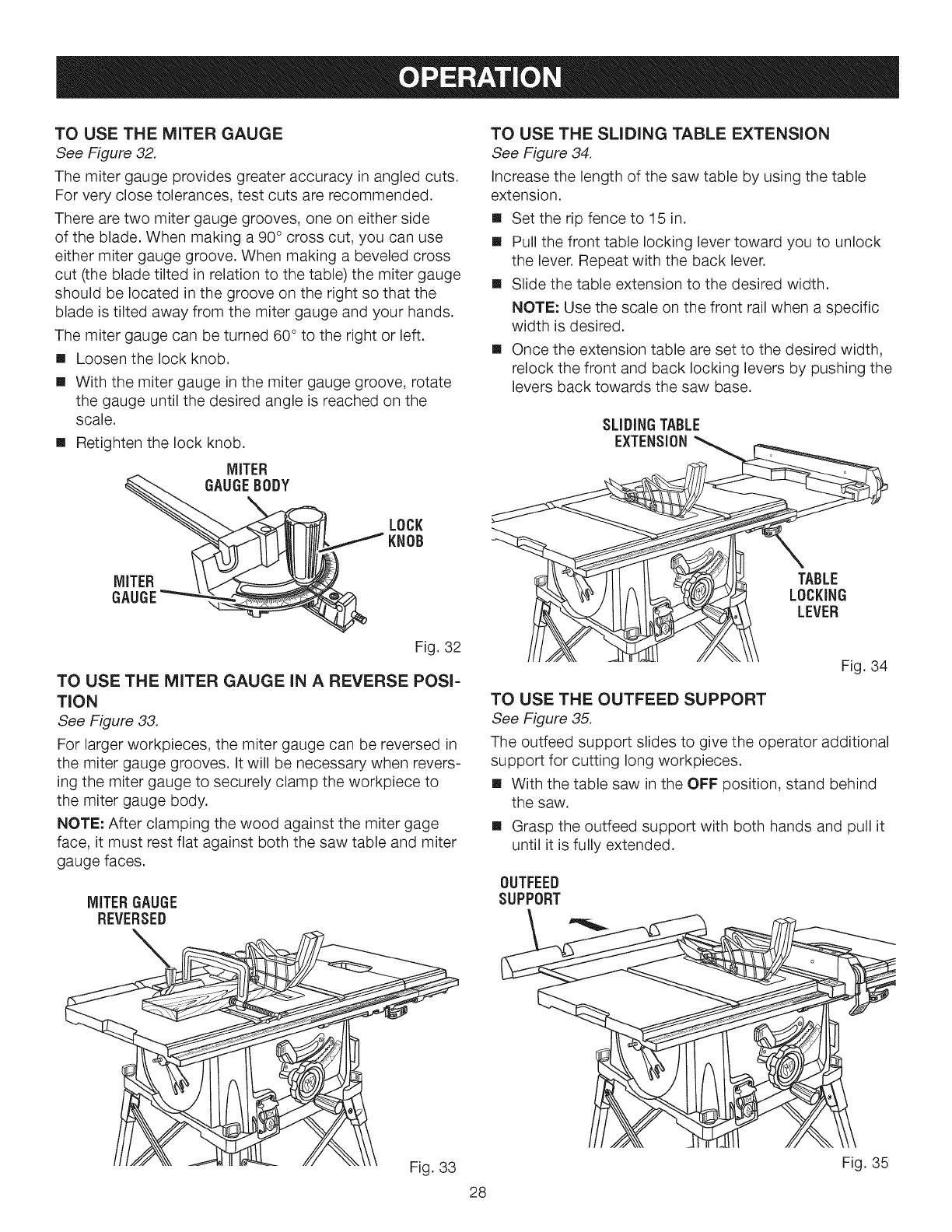
TO USE THE MITER GAUGE
See Figure 32.
The miter gauge provides greater accuracy in angled cuts.
For very close tolerances, test cuts are recommended.
There are two miter gauge grooves, one on either side
of the blade. When making a 90° cross cut, you can use
either miter gauge groove. When making a beveled cross
cut (the blade tilted in relation to the table) the miter gauge
should be located in the groove on the right so that the
blade istilted away from the miter gauge and your hands.
The miter gauge can be turned 60 ° to the right or left.
[] Loosen the lock knob.
[] With the miter gauge in the miter gauge groove, rotate
the gauge until the desired angle is reached on the
scale.
[] Retighten the lock knob.
MITER
GAUGE BODY
TO USE THE SLiDiNG TABLE EXTENSION
See Figure 34.
Increase the length of the saw table by using the table
extension.
[] Set the rip fence to 15 in.
[] Pull the front table locking lever toward you to unlock
the lever. Repeat with the back lever.
[] Slide the table extension to the desired width.
NOTE: Use the scale on the front rail when a specific
width is desired.
[] Once the extension table are set to the desired width,
relock the front and back locking levers by pushing the
levers back towards the saw base.
SLIDINGTABLE
EXTENSION
MITER
GAUGE
LOCK
KNOB
Fig. 32
TO USE THE MITER GAUGE iN A REVERSE POSl=
TION
See Figure 33.
For larger workpieces, the miter gauge can be reversed in
the miter gauge grooves. It will be necessary when revers-
ingthe miter gauge to securely clamp the workpiece to
the miter gauge body.
NOTE: After clamping the wood against the miter gage
face, it must rest flat against both the saw table and miter
gauge faces.
MITERGAUGE
REVERSED
\
TABLE
LOCKING
LEVER
Fig. 34
TO USE THE OUTFEED SUPPORT
See Figure 35.
The outfeed support slides to give the operator additional
support for cutting long workpieces.
[] With the table saw in the OFF position, stand behind
the saw.
[] Grasp the outfeed support with both hands and pull it
until it is fully extended.
OUTFEED
SUPPORT
Fig. 33
28
Fig. 35



